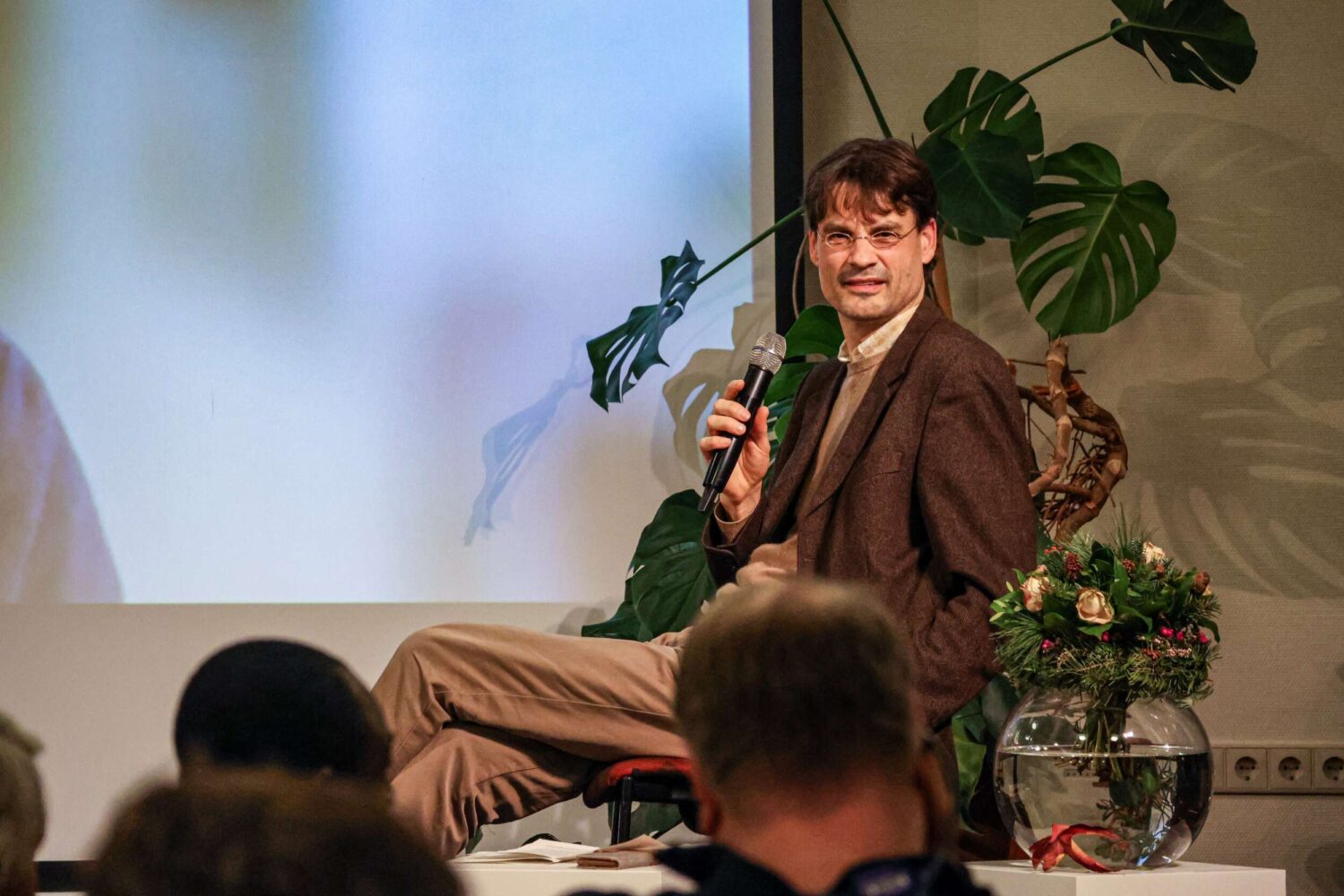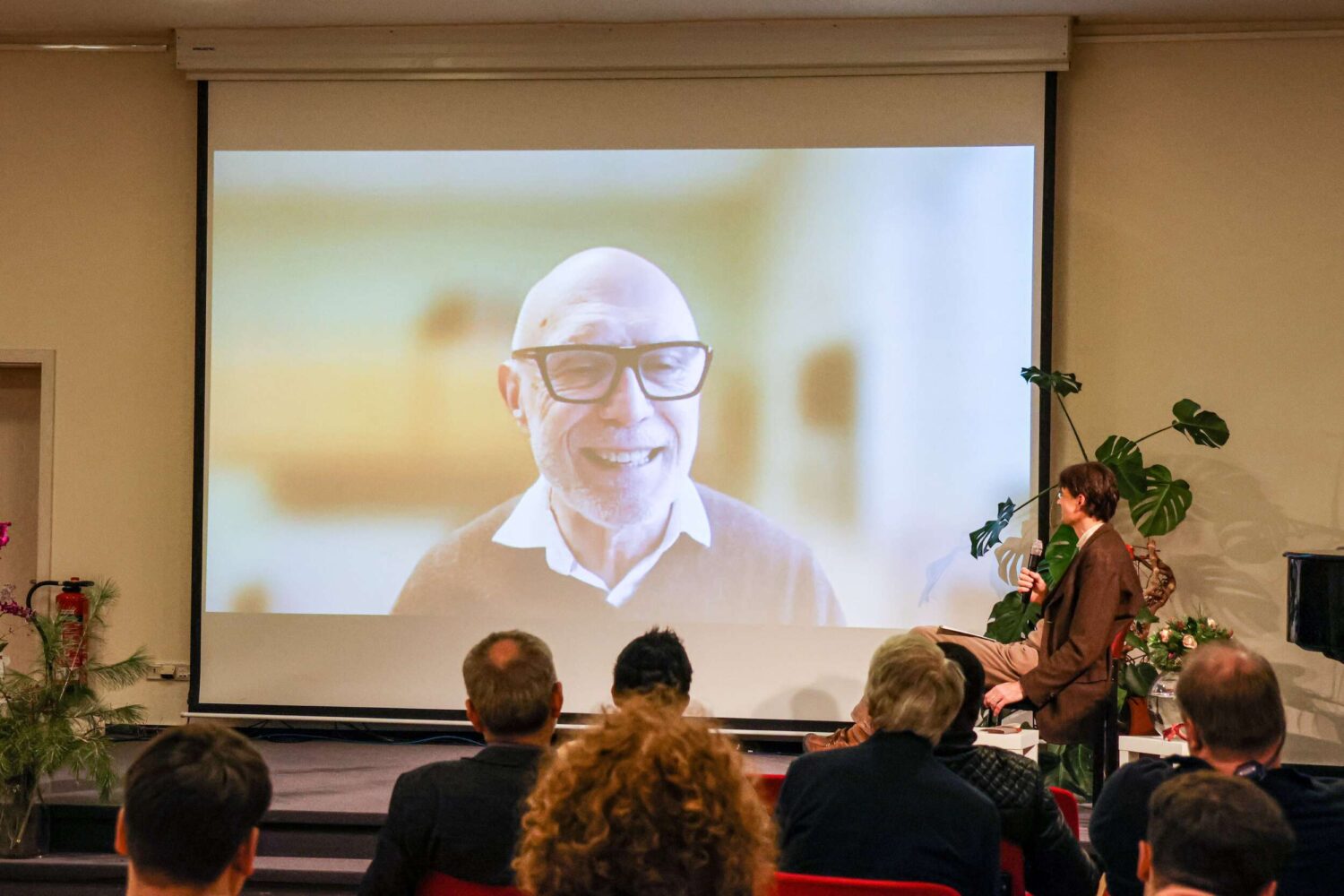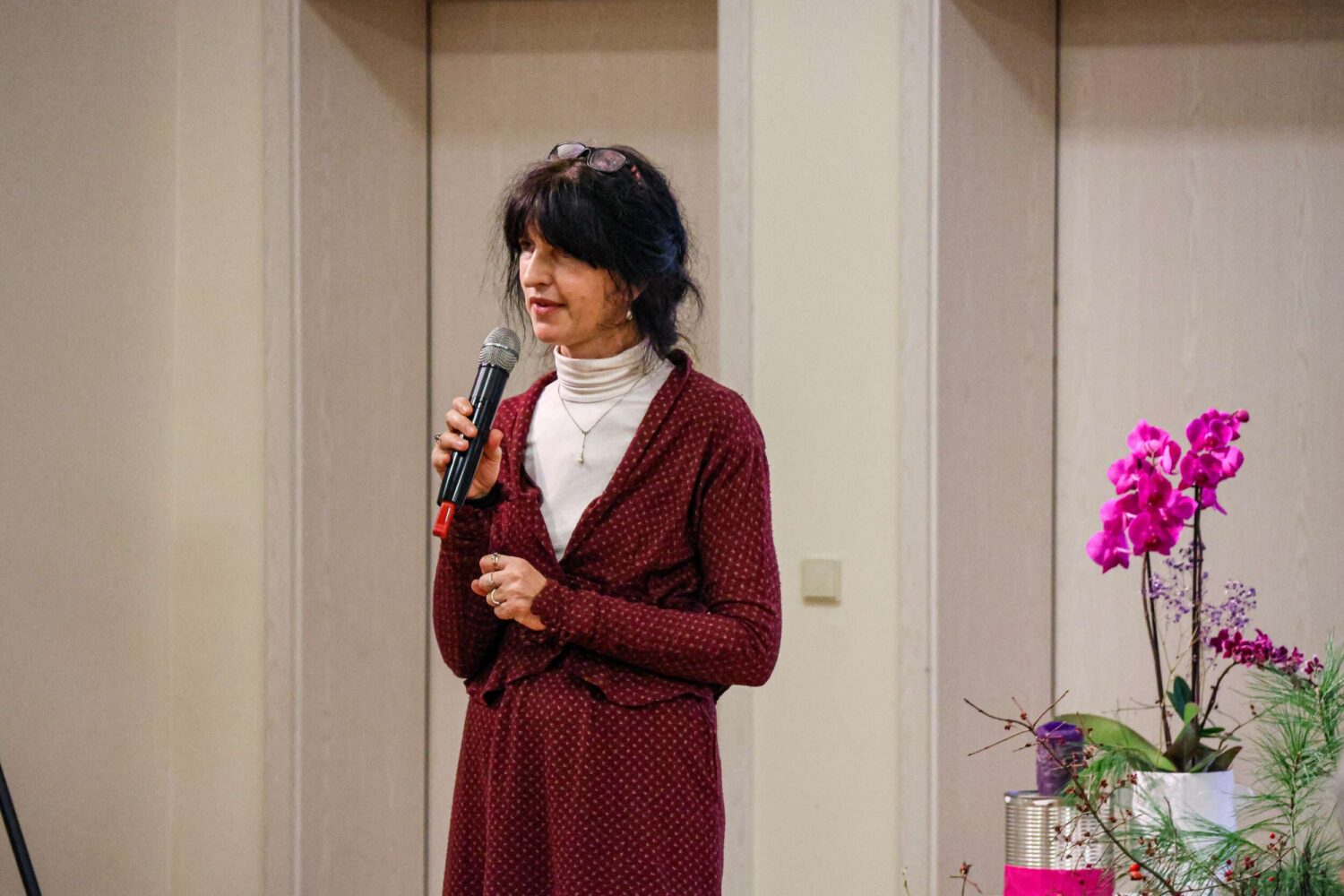Review of the lecture series: Lecture by Prof Miroslav Volf
13. Jan. 2025 / Events / Science & Research
Interview with Professor Dr. Miroslav Volf: The Blossoming Climax of a Series on Flourishing
As part of the celebrations marking the 125th anniversary of Friedensau Adventist University, a series of lectures on the theme of "Flourishing" was organized in collaboration between the Schools of Social Sciences and Theology, under the leadership of Dr Regina Lorek. This theme resonated deeply, not only with the challenges and aspirations of contemporary society but also as a symbolic reflection of the flourishing past, present, and future of our University. After four thought-provoking lectures, each held in the fully packed aula of Wilhelm-Michael-House, the series concluded with a captivating interview featuring the distinguished Professor of Theology at Yale University, Prof. Dr. Miroslav Volf. The interview, moderated by Prof. Stefan Höschele, centered on a profound question: Can theology contribute to the vision of a flourishing life, and if so, how?
While many attendees were aware that flourishing is central to Dr. Volf’s theological work, Prof. Höschele intriguingly and exclusively opened the discussion to uncover, why this theme became so integral to his teaching and writing. Dr. Volf shared that his interest in the concept of flourishing, or what he calls “the life worth living,” had been present from the very beginning of his theological journey. However, during his years of academic formation, he was unable to fully focus on this theme.
It was only after earning tenure, and under the influence of his colleague Anthony T. Kronman, that he returned to this foundational question. Volf emphasized that flourishing should occupy a central place in theology, despite some scholarly critiques of his view that "the life worth living" represents a primary concern of Western society. He argued that all major religions and philosophical traditions grapple with this question, affirming the universality and significance of the concept.
In elucidating the idea of flourishing, Dr. Volf highlighted its multifaceted nature—a perspective that aligned with the interdisciplinary approach of our series of lectures. He proposed that the question of a life worth living must address three essential dimensions of flourishing: circumstantial, agential, and emotional. While different traditions may prioritize one dimension over others, Volf asserted that true flourishing is a holistic experience. A flourishing life, he explained, is one that is lived well (through the agency of good character and right actions), goes well (marked by desirable circumstances), and feels well (through positive emotional experiences).
Having established the centrality and complexity of the concept, Prof. Höschele steered the conversation towards a more pragmatic consideration: if flourishing is so vital and multifaceted, can it be strategically achieved? Dr. Volf suggested that flourishing should be understood in the context of Christian calling, or, to use the language of the Gospel, as something so valuable that we would be willing to sell everything to attain it. He also underscored the importance of clarifying whose flourishing we are discussing—our own or that of our neighbors. For Christians, he insisted, the goal should extend beyond personal flourishing to include the flourishing of others, as well as the entirety of creation. Christian faith, being universal, calls for a vision of flourishing that encompasses all of humanity and the natural world.
The interview concluded with a poignant question from Prof. Höschele: What advice would Dr. Volf offer to Friedensau and other Adventist universities in Europe in light of his teachings on flourishing? In his humility, Volf refrained from giving explicit advice and instead acknowledged how various Adventist practices, particularly the observance of the Sabbath, could significantly contribute to the vision of a flourishing life. This final reflection left the audience to wonder how they, as individuals and as members of the university community, might cultivate flourishing in their own lives and in the world around them.
The series of lectures ended on a note of introspection and inspiration, inviting us to reflect on the flourishing we see in our past, aspire to in the present, and envision for the future. The concluding interview with Dr. Volf served as a fitting culmination—a call to think deeply about flourishing as it relates to our lives, our communities, and the mission of our University.
Goran Živković, Ph.D., Lecturer of Old Testament

Image Rights: FAU

Image Rights: FAU

Image Rights: FAU

Image Rights: FAU